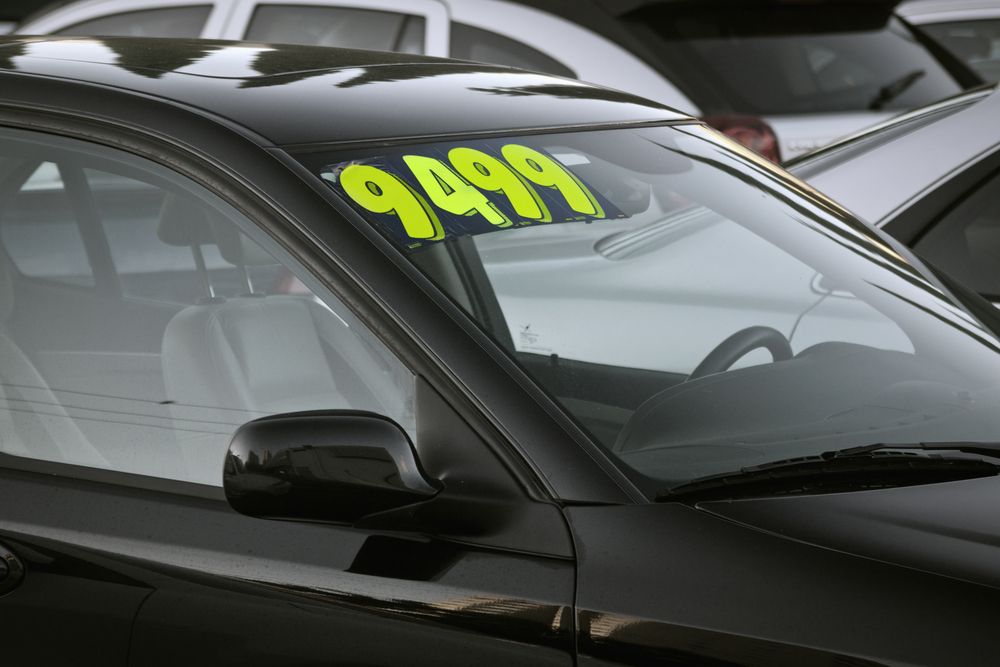Credit Acceptance Corp. Tricked Customers into High-Cost Used Car Loans, Feds Charge

The Consumer Financial Protection Bureau (CFPB) and the New York State Office of the Attorney General have sued auto lender Credit Acceptance Corporation for allegedly misrepresenting the cost of credit and tricking its customers into high-cost loans on used cars, charging that the car-buying experience turns into a nightmare for many of Credit Acceptance’s borrowers, who face unaffordable monthly payments, vehicle repossessions, and debt collection lawsuits.
The joint complaint alleges that, among other things, Credit Acceptance hides costs in loan agreements and sets consumers up to fail. The complaint also alleges that Credit Acceptance violated New York usury limits and other consumer and investor protection laws. The lawsuit seeks to force Credit Acceptance to stop its illegal practices, reimburse harmed consumers, pay back wrongfully earned gains, and pay a penalty.
“Credit Acceptance obscured the true cost of its loans to car buyers, leading to severe financial distress for borrowers and subjecting them to aggressive debt collection tactics on loans its own systems predicted that borrowers can’t afford to repay,” said CFPB Director Rohit Chopra. “The CFPB and the New York Attorney General seek to halt Credit Acceptance’s illegal practices and make consumers whole.”
Auto loans are the third largest category of outstanding consumer debt, after mortgages and student loans. In recent years, the cost of vehicles has risen substantially, leading to increased borrowing. Over the last year, the CFPB has increased its monitoring of the auto lending market. The CFPB is also exploring ways to enhance the availability of data about the market.
Credit Acceptance (NASDAQ:CACC) is an indirect auto lender headquartered in Southfield, Michigan that funds and services used-car loans for people with low credit scores. Credit Acceptance is one of the country’s largest publicly traded auto lenders and does business with a network of more than 12,000 affiliated used-car dealers.
From November 2, 2015 to April 30, 2021, approximately 1.9 million people obtained used car loans through Credit Acceptance and its affiliated dealers. In 2020 alone, consumers obtained more than $4.9 billion in Credit Acceptance-financed loans. The company’s loans typically carry very high interest rates.
“CAC claimed to help low-income New Yorkers purchase cars, but instead, drove them straight into debt,” said New York Attorney General Letitia James. “CAC steered hardworking New Yorkers onto a path of financial ruin by tricking them into unaffordable, high-interest auto loans while cutting backroom deals with dealers to increase their own profits. These predatory actions hurt innocent people and left them with mountains of debt. I thank the CFPB for their partnership to stop this harm and protect everyday New Yorkers.”
Allegations spelled out
Specifically, the CFPB and New York allege the company allegedly harmed consumers by:
- Hiding the true cost of credit: Since 2014, Credit Acceptance’s loan agreements nationwide have said that consumers would pay interest at an average 22% APR. However, the true cost of credit offered is far higher than what borrowers are told. This is because Credit Acceptance’s business model pushes dealers to manipulate the prices of vehicles sold to Credit Acceptance borrowers, based on borrowers’ projected performance. This increases the principal balance of the loans. By hiding the true cost of the credit in inflated principal balances, Credit Acceptance evades state interest rate caps and deprives consumers of the ability to make informed decisions, to compare financing options, or to avoid high interest charges.
- Setting up borrowers to fail: Credit Acceptance ensured its own profits by providing loans without regard to whether borrowers could afford them. For almost 4 out of 10 loans, Credit Acceptance predicted that it would not be able to collect the full amount financed by the loan. Credit Acceptance profits even when borrowers are unable to pay their loans in full by using aggressive debt collection methods. As a result of Credit Acceptance’s practices, customers faced late fees, repossessions, auctions, post-repossession collection efforts, lawsuits, and ruined credit profiles.
- Closing its eyes to practices that harmed consumers: The company created financial incentives for dealers to add extra products to loans and then shrugged off whether customers were misled into thinking the add-on products were required. Add-on products, such as vehicle service contracts, are a profit center for Credit Acceptance. They represented about $250 million in revenue in 2020 alone.
When borrowers default on loans, it can lead to severe consequences, including wage garnishment and an inability to borrow money in the future. A default on an auto loan can also lead to the borrower losing their means of transportation, which can cause job loss and a further spiral of damaged credit and financial distress.
This is not the only action targeting Credit Acceptance for violation of consumer financial protection laws. Last year, the Massachusetts Attorney General secured more than $27 million for thousands of families harmed by Credit Acceptance.
Consumers can submit complaints about auto loan products, and about other financial products and services, by visiting the CFPB’s website or by calling (855) 411-CFPB (2372).
